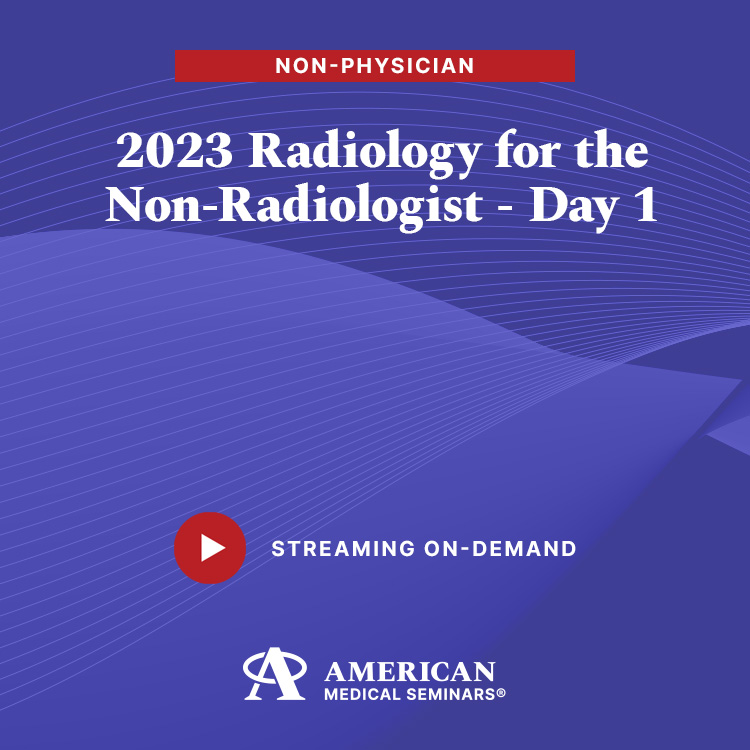Product Description
Title: 2023 Radiology for the Non-Radiologist – Day 1 (Non-Physician)
Faculty: Adam R. Guttentag, M.D.; Ryan K. Lee, M.D., MBA.; and Ryan Smith, M.D.
Release Date: 7/1/2023 Expiration Date: 7/1/2026
Day 1
Overview of Skeletal Imaging: Pearls and Pitfalls
Upon completion of this session, using evidence based and clinical practice guidelines, including Salter-Harris fracture classifications, the participant should be able to: EBM, GL, COMP
- Determine which imaging studies are indicated and which studies are not indicated in the setting of acute trauma.
- Develop an approach to evaluating skeletal radiographs.
- Detect radiographic findings in pediatric radiographs.
Ultrasound Basics
Upon completion of this session, the participant should be able to: EBM, GL, COMP
- Discuss commonly used terms in ultrasound.
- Determine in which clinical settings, based on the SRU Consensus Statement, ultrasound is the most appropriate study to order.
- Recognize US findings for common diseases/diagnoses.
Stroke and Imaging
Upon completion of this session, based on the Guidelines from NINDS and Advanced Cardiac Life Support, the participant should be able to: GL, COMP
- Appraise the different imaging modalities available in the assessment of stroke.
- Evaluate the benefits and drawbacks of each imaging modality.
- Determine the appropriate imaging study to order in various clinical scenarios.
Basic Chest X-Ray Interpretation
Upon completion of this session, the participant should be able to: COMP
- Develop a systematic approach to interpreting a chest radiograph.
- Assess a chest radiograph for technical factors that may hide or simulate disease.
- Determine whether a chest radiograph demonstrates air space disease and localize it in
the lung.
Contrast and Radiation Issues in Radiology: What a Clinician Should Know
Upon completion of this session, the participant should be able to: EBM, GL, COMP
- Utilize evidence-based guidelines to appropriately order intravenous contrast for CT scans for patients with impaired renal function.
- Apply evidence-based guidelines to decide whether it is safe to order intravenous contrast for MRI examinations.
- Describe factors leading to increased radiation exposure to patients from medical
imaging. - Select appropriate tests to order so as to minimize patient radiation dose without
sacrificing diagnostic accuracy.
- The receipt for any incentive-associated purchase will designate the value of the gift card separately from the cost of the learning activity.
- This incentive may have implications on your tax reporting obligations. Any reimbursed amount must be declared as personal income for tax purposes.


